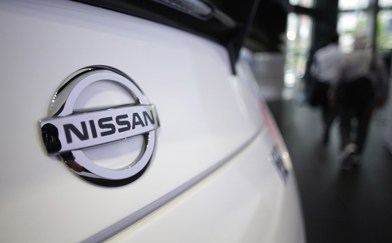Volvo has unveiled its latest battery electric vehicle (BEV), the EX30, a small SUV that aims to attract younger and even more eco-conscious buyers to the brand. The EX30 is the smallest and cheapest model in Volvo’s electric lineup, starting at $34,950 in the US and £33,795 in the UK - New Zealand prices will be announced in the next few months.
The EX30 is based on a new platform developed by Volvo’s parent company Geely (which also owns Polestar and Lynk & Co.) and the company says that it is giving buyers "the freedom to choose the battery technology that best suits their needs" by offering three powertrain options and two different battery types.
The base model has a single rear motor that produces 197kW and a lithium iron phosphate (LFP) battery that provides 350km of range. Volvo says the LFP battery is cheaper and less resource-intensive than conventional lithium-ion batteries, but also slower to charge.
The mid-range "Single Motor Extended Range" model swaps out the LFP battery for a nickel manganese cobalt (NMC) battery that provides 480km of range. The NMC battery is more energy-dense and faster to charge than the LFP battery, but also more expensive and less environmentally friendly.
The top "Twin Motor Performance" model gets a dual motor AWD set up that produces 315kW and uses the longer-range NMC battery, and also happens to be the fastest Volvo ever built, going from zero to 100km/h in 3.6 seconds. In fact, even the base model isn't slow, hitting the open road speed limit in under 5.5 seconds.
The EX30 can recharge at up to 153kW for the NMC battery models and up to 134kW for the LFP battery model, meaning it can charge from 10 to 80 percent in about 25 minutes.
The EX30 features a simple and sustainable interior, which boasts a single 12.3-inch touchscreen powered by Google’s Android Automotive OS. The touchscreen controls most of the car’s functions, including navigation, entertainment, climate, and settings, while a full-width sound bar on the dashboard provides "immersive audio quality". The interior uses recycled and renewable materials, such as wool-blend fabrics, cork vinyl, and wood fibres.

Volvo claims the EX30 has the "lowest carbon footprint of any Volvo to date" with a total footprint over 200,000km of driving of less than 30 tonnes.
The EX30 will go into production in China later this year, in a factory that uses mostly renewable energy sources.
A Cross Country model will be added to the line up next year, bringing additional features like more ground clearance, underbody protection and the option of 18-inch wheels with all-terrain tyres.
“We’re excited to announce the arrival of the EX30 to Volvo’s fully electric line up," said Ben Montgomery, General Manager of Volvo New Zealand.
"New Zealand expects to see the EX30 in early 2024 with pricing to be revealed in the next few months”
The EX30 is part of Volvo’s ambitious plan to become an all-electric car maker by 2030. The company expects electric vehicles to account for half of its global sales by 2025 and 100 percent by 2030.










